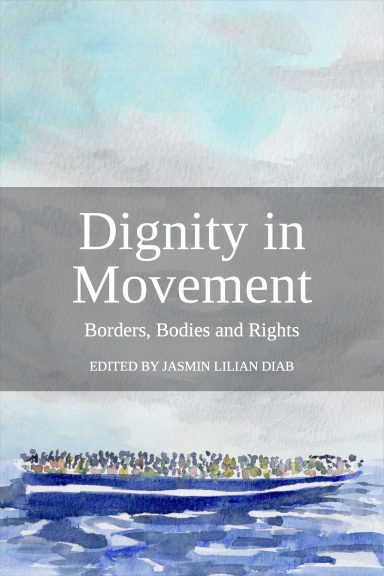This book brings together a diverse range of contributors to offer interdisciplinary perspectives on developments across the forced migration sphere – including reflections on international migration and refugee law, global health, border management, illegal migration, and intersectional migration experiences. The chapters address subjects ranging from the Global Compact for Migration, migration laws, fundamental human rights discourse and principles, colonial violence, environmental migrants, and internal displacement. The book additionally delves into the interplay between such notions as the role of women in migration trends, the Kafala System, unaccompanied minors, and family dynamics. Along with tackling border practices, transnational governance, return migration, and complementary protection, the chapters featured in this volume discuss the notions of belonging, stigma, discrimination, and racism.
Dignity in Movement: Borders, Bodies and Rights
Table of contents
Introduction – Jasmin Lilian Diab
A Foucauldian Reading of the Global Compact for Migration: How ‘The Migrant’ is Represented and Rendered Governable – Anna Closas Casasampera
The Compliance of Argentina’s Migration Law with Fundamental Human Rights Discourse and Principles – Sabrina Andrea Avigliano
On The Margins of EU-Rope: Colonial Violence at The Bosnian-Croatian Frontier – Benedetta Zocchi
Recognition and Protection of Environmental Migrants in International Law: A Long-Lasting Swing Between Urgency and Postponement – Chiara Scissa
The Internal Displacement of People in South Sudan: Understanding Civil War and Forced Movement of People – Kensiya Kennedy and Keshav Basotia
Nineteenth Century Migration Trends and the Role of Women – Kendra Morancy
The Cruelty of Kafala – Lorcán Owens
English With a Non-Native Accent as a Basis for Stigma and Discrimination in the United States – Meltem Yilmaz Sener
Unaccompanied Children on The Move: From Central America to the United States Via Mexico – Monica Trigos Padilla
Migration Management and Safe Migration Along the Indonesia-Malaysia Corridor – Oanh K. Nguyen
Governing Movement in Displacement: The Case of North Jordan – Hannah Owens
When Social Reproduction Becomes Political: How London’s Latin American Women Make Their Families, Communities and Rights Visible – Domiziana Turcatti
Between Oppressions and Resistance: A Decolonial Feminist Analysis of Narratives from Nicaraguan Caregiving Grandmothers and Women Returnees From El Salvador – Fiore Bran Aragón
Women For Profit: Seeking Asylum in the United States – A Neocolonial Story – Sara Riva
Rejected Asylum Claims and Children in International Human Rights Law: Changing the Narrative – Anne-Cecile Leyvraz
Gendered Border Practices and Violence at the United States-Mexico Border – Mitxy Menesus Guitierrez
European Union Readmission Agreements: Deportation as a Gateway to Displacement? – Manuela Da Rosa Jorge
On Collaboration and Cooperation: Transnational Governance as a Framework for Migration Control – Alma Stankovic
Solidarity and Neoliberalism in the Implementation of Mexico’s Refugee, Complementary Protection and Political Asylum Law (2014–2019) – Guadalupe Chavez and Alexander Voisine
Aiding and Abetting: Assessing the Responsibility of European Union Officials for Crimes Against Humanity Committed Against Migrants in Libya – Pat Rubio Bertran
At the European Union-Turkey Border, Human Rights Violations Are No Longer Clandestine Operations – Meredith Veit and Flo Strass
